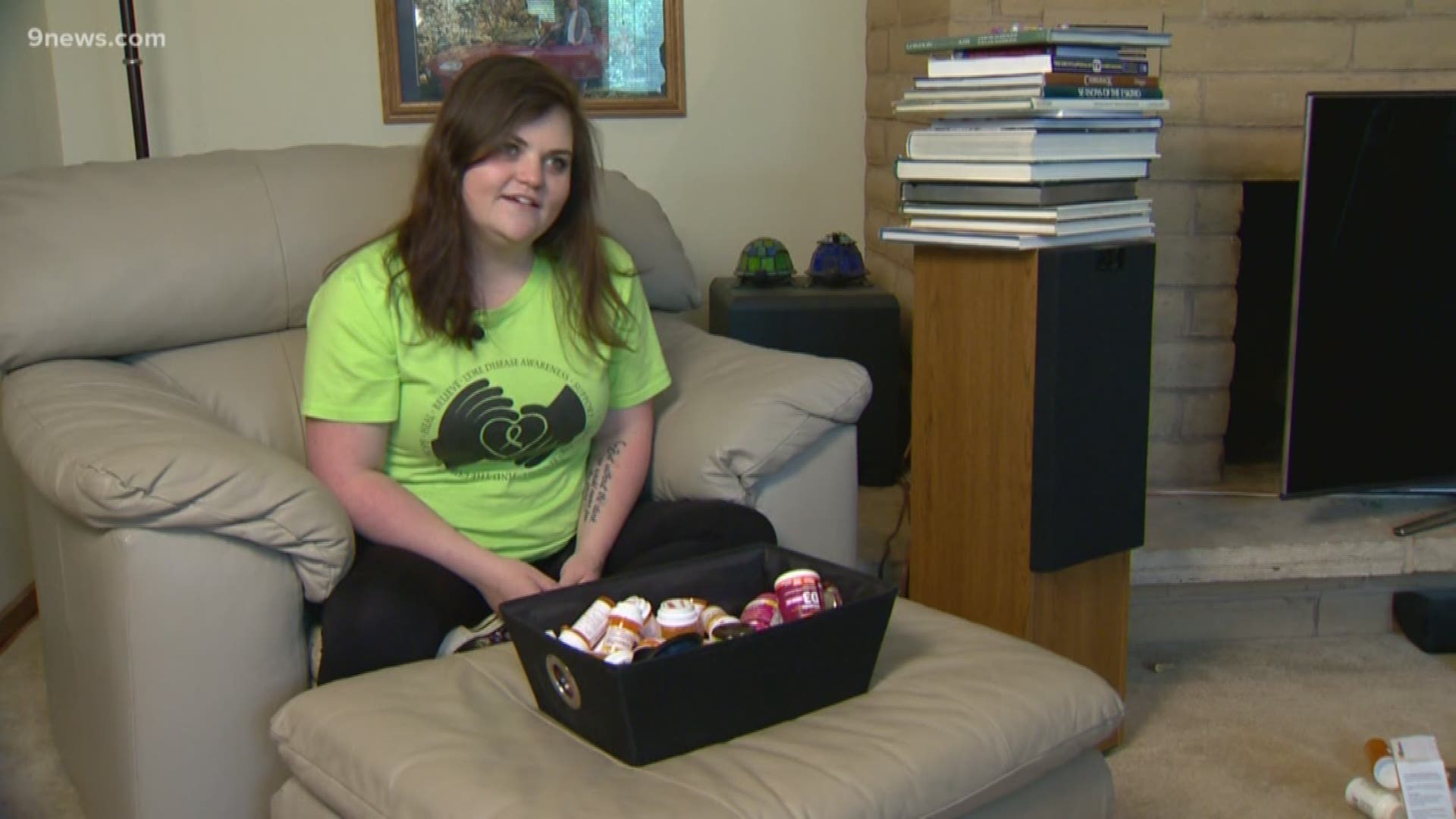LOVELAND, Colo. — In the countryside near Loveland lives a problem with currently no solution.
"I'm on 17 or 18 different pills at the moment," Teal Green, 25, said. "Not so bad for me considering it used to be 49 pills a day."
Green never wanted to know so much about prescription drugs. But, pills became the norm when she contracted Lyme Disease in middle school.
"Thirteen years ago now, I got 27 tick bites over two summers," Green said.
She says it caused her so many health problems and had to take so many IVs, she created a massive castle made of medicine vials to show how much medicine she took over a nine-month period.
"I actually built it because I wanted to bring awareness to Lyme Disease," Green said.
But, out of the thousands of little bottles in her castle not one of them is for what troubles her the most.
"Every day I wake up with constant pain," Green said. "My back is especially a hard part and my neck."
RELATED: Storytellers: The Art Warrior
Anne Wood is Green's mother and official caregiver.
"It's heartbreaking," Wood said. "I have a beautiful daughter who deserves to live."
If Green is having one of those days when the pain is too much, Wood brings her to the hospital for help.
"When a chronically-ill patient is ill enough to show up at the ER, it's because we don't have anything at home that will take care of that breakthrough pain immediately," Wood said.
Though Green doesn't like taking them, she says at times the only thing that will relieve her pain is an opioid prescription.
"I didn't want to because I knew what they did to your mind and I didn't like that," Green said. "We have tried IV Dilaudid, oral Dilaudid, Oxycodone, Hydrocodone. There's one point we tried IV Ketamine."
The problem is hospitals right now are purposely handing out fewer opioid prescriptions to cut back on addiction issues.
"I support their efforts because so many people are dying from it," Wood said.
Green does too.
"Definitely, I have no problem with that," Green said.
But, the effect is that several times Green has had to leave the emergency room with no help, no prescription -- and one time, with no hope.
"I did not want to live anymore. I was in so much pain. I couldn't do it. I couldn't function. I had no life. There was no point in living if I was going to be in that much pain every day of my life," Green said.
Wood said there must be a better way for doctors to know when an opioid prescription is really needed.
"There's got to be some communication that is not happening and that's how I think you can fix this," Wood said. "Find alternatives, that's great. But, treat people properly, too."
Green understands that this is a complicated problem.
"There's not really a clear-cut answer to it, I think, and that's the hard part about this. There isn't any easy solution to any of it," Green said.
There are just people like Green living around Colorado who end up suffering for the greater good.
"It's the only choice I have in this situation," Green said. "The best thing I can do is be positive."
SUGGESTED VIDEOS | More Storytellers

